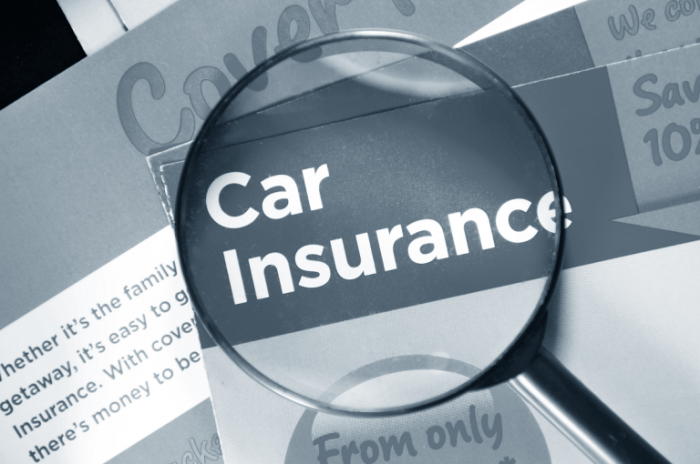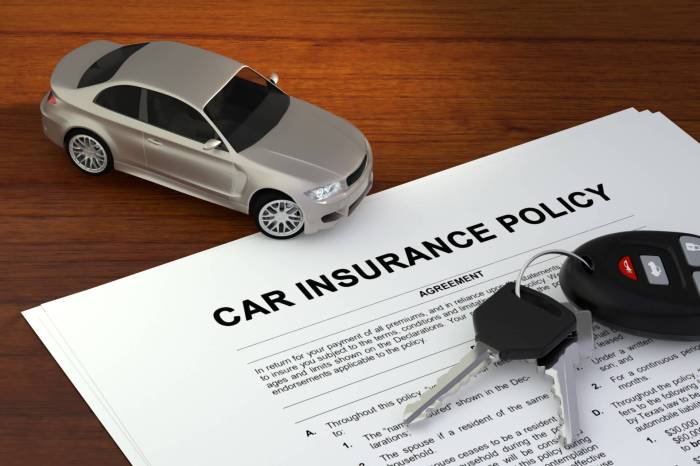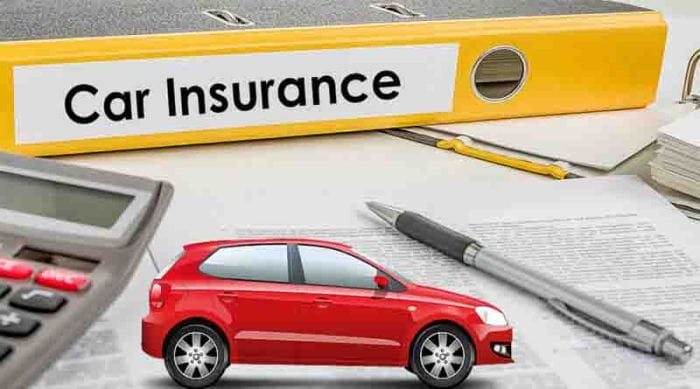In today’s fast-paced world, securing reliable car insurance is not just a legal requirement but also a wise decision that protects your financial well-being. With a myriad of insurance options available, choosing the best coverage for your car can be a daunting task.
This comprehensive guide aims to simplify the process, providing you with valuable insights and practical tips to help you make an informed decision.
Selecting the right car insurance is a balancing act between coverage, cost, and customer service. Understanding your unique driving needs and risk profile is the cornerstone of this process. From comparing quotes to comprehending coverage limits, this guide delves into each aspect, ensuring you navigate the insurance landscape with confidence.
Understanding Your Insurance Needs

Choosing the right car insurance policy is crucial for protecting yourself financially in the event of an accident. It is essential to understand the different types of coverage available and to assess your individual needs and risk profile.
Types of Car Insurance Coverage
There are several types of car insurance coverage to consider:
- Liability Coverage: Covers damages and injuries caused to others in an accident you are at fault for.
- Collision Coverage: Covers damages to your own car in an accident, regardless of fault.
- Comprehensive Coverage: Covers damages to your car caused by events other than accidents, such as theft, vandalism, or natural disasters.
- Uninsured/Underinsured Motorist Coverage: Covers damages and injuries caused by drivers who do not have insurance or who have insufficient insurance.
- Medical Payments Coverage: Covers medical expenses for you and your passengers, regardless of who is at fault for an accident.
Assessing Your Insurance Needs
To determine the right insurance coverage for you, consider the following factors:
- Driving Habits: If you drive frequently or in high-risk areas, you may need more comprehensive coverage.
- Age and Value of Your Car: Older cars may not need comprehensive or collision coverage.
- Financial Situation: Consider your budget and how much you can afford to pay for premiums.
- Local Laws and Regulations: Some states have minimum insurance requirements.
Researching and Comparison

Making an informed decision about car insurance requires research and comparison among multiple providers. By comparing insurance quotes, you can assess the coverage options, premiums, and customer service offered by different companies, ensuring you get the best value for your money.
To gather information about insurance companies and their offerings, utilize online comparison tools, insurance company websites, and independent insurance agencies. Read reviews, check ratings, and compare the financial strength of companies to assess their reliability and reputation.
Steps for Comparing Insurance Quotes Effectively
- Determine Your Coverage Needs: Identify the coverage types and limits that suit your specific requirements. Consider factors like the value of your car, driving habits, and any special coverage needs (e.g., roadside assistance, rental car reimbursement).
- Get Quotes from Multiple Providers: Contact at least three to five insurance companies or use an online comparison tool to obtain quotes. Provide accurate information about your vehicle, driving history, and coverage preferences.
- Compare Coverage Options: Scrutinize the coverage limits and exclusions of each policy to ensure they align with your needs. Pay attention to deductibles, which represent the amount you pay out-of-pocket before insurance coverage kicks in.
- Assess Premiums: Compare the premiums offered by different companies. While cost is a factor, don’t compromise on coverage quality for a lower premium. Consider the overall value and benefits of each policy.
- Read the Fine Print: Carefully review the policy documents to understand the terms and conditions, including exclusions, limitations, and claim procedures. Ensure you comprehend the policy’s implications before making a decision.
- Consider Customer Service: Research the customer service reputation of each insurance company. Read reviews, talk to friends or family members who have experience with the companies, and assess their responsiveness, claims handling process, and overall customer satisfaction.
Considering Premiums and Costs
Car insurance premiums vary depending on several factors, including age, driving history, and vehicle type. Understanding these factors can help you find the best deals and discounts on car insurance.
Factors Affecting Premiums
- Age: Younger drivers typically pay higher premiums due to their lack of experience and higher risk of accidents.
- Driving History: A clean driving record with no accidents or violations can lead to lower premiums.
- Vehicle Type: The make, model, and safety features of your car can impact your premium. Sports cars and luxury vehicles often have higher premiums than sedans or SUVs.
- Location: The cost of car insurance can vary depending on the state or region you live in.
- Coverage Level: The amount of coverage you choose will also affect your premium. Higher coverage limits typically result in higher premiums.
Finding the Best Deals and Discounts
- Shop Around: Get quotes from multiple insurance companies to compare rates and coverage options.
- Ask About Discounts: Many insurance companies offer discounts for things like bundling policies, having a clean driving record, or taking a defensive driving course.
- Consider Usage-Based Insurance: Some companies offer usage-based insurance programs that track your driving habits and reward you with lower premiums for safe driving.
- Increase Your Deductible: Choosing a higher deductible can lower your premium, but it also means you’ll have to pay more out of pocket if you file a claim.
Managing and Budgeting for Costs
- Set a Budget: Determine how much you can afford to spend on car insurance each month or year.
- Pay Your Premiums on Time: Late payments can result in penalties or even cancellation of your policy.
- Review Your Policy Regularly: As your driving habits and needs change, you may need to adjust your coverage or shop for a new policy.
- Consider Long-Term Savings: While it may be tempting to choose the cheapest policy, consider the long-term savings you can achieve by choosing a policy with better coverage and customer service.
Coverage Limits and Options
When selecting your car insurance policy, choosing the right coverage limits is crucial for ensuring adequate protection in the event of an accident or loss. Coverage limits determine the maximum amount your insurance company will pay for various types of expenses, such as bodily injury, property damage, and collision repairs.
Selecting the Appropriate Coverage Limits
Selecting the appropriate coverage limits depends on several factors, including the value of your car, your financial situation, and your risk tolerance. Here are some guidelines to help you make informed decisions:
1. Liability Coverage
- Liability coverage protects you against claims arising from bodily injury or property damage caused to others in an accident.
- Choose liability limits that exceed the minimum required by your state, as higher limits provide greater protection.
2. Collision Coverage
- Collision coverage covers damage to your own vehicle resulting from a collision with another vehicle or object.
- Consider collision coverage if your car is relatively new or has a high value.
3. Comprehensive Coverage
- Comprehensive coverage protects your vehicle against non-collision related damages, such as theft, vandalism, fire, and natural disasters.
- Consider comprehensive coverage if you live in an area prone to these types of events.
4. Uninsured/Underinsured Motorist Coverage
- Uninsured/underinsured motorist coverage protects you against damages caused by drivers who do not have insurance or have insufficient coverage.
- Consider this coverage if you frequently drive in areas with a high number of uninsured drivers.
Understanding Endorsements and Additional Coverage

Endorsements are additional coverages that can be added to your car insurance policy to enhance your protection and address specific needs. These add-ons provide broader coverage and can be tailored to your individual circumstances.
There are various types of endorsements available, each offering unique benefits and addressing different situations. Some common endorsements include:
Roadside Assistance
Roadside assistance provides coverage for unexpected situations on the road, such as flat tires, dead batteries, or mechanical breakdowns. This endorsement typically includes services like towing, fuel delivery, and locksmith assistance.
Rental Car Reimbursement
Rental car reimbursement coverage provides reimbursement for the cost of renting a car if your insured vehicle is damaged or stolen. This can be especially useful if you rely on your car for daily transportation or work.
Accident Forgiveness
Accident forgiveness is an endorsement that protects your insurance rates from increasing after a certain number of at-fault accidents. This can be beneficial for drivers who are concerned about their rates rising due to an occasional accident.
When selecting endorsements for your car insurance policy, consider the following tips:
- Assess your individual needs and circumstances. Identify specific risks or situations you want to be covered for.
- Review your policy carefully to understand the existing coverage and identify any gaps that endorsements can fill.
- Compare different endorsements offered by your insurance provider and choose the ones that best suit your requirements and budget.
- Consider the cost of each endorsement and weigh it against the potential benefits and peace of mind it provides.
Customer Service and Support

In the realm of car insurance, encountering issues or uncertainties is inevitable. Hence, choosing an insurance company with exceptional customer service becomes paramount. A responsive and supportive insurer can make all the difference in ensuring a smooth and stress-free experience when dealing with claims, inquiries, or policy modifications.
Research and Comparison
To identify insurance companies with superior customer service, conducting thorough research and comparing their ratings is crucial. Numerous platforms and resources provide valuable insights into the customer service performance of different insurers. Study these ratings and reviews to gain a comprehensive understanding of the companies’ reputation in handling customer concerns and resolving issues efficiently.
Tips for Finding Reliable Support
1. Responsiveness
Assess the company’s responsiveness to inquiries and claims. Consider factors such as the average time taken to respond to emails, phone calls, or online queries. A prompt and efficient response time indicates a company’s commitment to customer satisfaction.
2. Resolution Rate
Investigate the company’s success rate in resolving customer issues and claims. A high resolution rate signifies the insurer’s ability to effectively address and resolve customer concerns, leading to positive outcomes.
3. Personalized Service
Look for an insurance company that offers personalized service and tailored solutions. A dedicated representative or agent who understands your unique needs and provides customized guidance can make a significant difference in your experience.
4. 24/7 Availability
Consider the company’s availability and accessibility. Does it offer 24/7 customer support? Is there a dedicated claims hotline or online portal for easy access? Round-the-clock availability ensures that assistance is just a call or click away, providing peace of mind and convenience.
5. Feedback and Reviews
Utilize online forums, social media platforms, and review websites to gather feedback and experiences from existing customers. Personal anecdotes and reviews can provide valuable insights into the actual customer service standards of an insurance company.
Claims Handling

Choosing an insurance company with a good claims handling reputation is crucial. A seamless claims process ensures timely compensation and minimizes stress during challenging situations.
Research and Comparison
Research and compare the claims handling track records of different insurance companies through online reviews, consumer reports, and industry rankings. Consider factors like claim settlement ratios, average claim processing times, and customer satisfaction ratings.
Tips for Fast and Efficient Claims Processing
1. Choose a Local Insurance Company
Opting for a local insurance company can expedite the claims process, as they often have a better understanding of local regulations and resources.
2. Review Your Policy
Familiarize yourself with your insurance policy, including the claims process and any specific requirements. This knowledge can help you navigate the process more effectively.
3. Promptly Report Claims
Report claims as soon as possible to initiate the process and avoid delays. Provide detailed information, including photos and documentation, to facilitate a smooth claims assessment.
4. Cooperate with the Insurance Company
Cooperate with the insurance company’s requests for information and documentation. Providing accurate and complete information can expedite the claims process.
5. Consider Mediation or Arbitration
If you encounter disputes or delays, consider mediation or arbitration to resolve the issue quickly and amicably.
Policy Reviews and Updates

Regularly reviewing your car insurance policy is crucial to ensure it still aligns with your changing needs and circumstances. It’s essential to work closely with your insurance agent to update your policy as your needs evolve. Here’s why policy reviews and updates are important:
Keeping Your Coverage Relevant
As your life and driving habits change, so should your car insurance coverage. Regularly reviewing your policy ensures that you have the right coverage limits, deductibles, and endorsements to meet your current needs. This helps prevent gaps in coverage that could leave you financially vulnerable in case of an accident or other covered event.
Adjusting for Changes in Vehicle and Usage
If you purchase a new car, your insurance coverage needs may change. You may need higher coverage limits or additional endorsements to protect your new vehicle adequately. Similarly, if your driving habits change, such as commuting longer distances or using your car for business purposes, you may need to adjust your policy accordingly.
Taking Advantage of Discounts
Insurance companies often offer discounts for certain safety features, such as airbags, anti-theft devices, and driver education courses. By reviewing your policy regularly, you can ensure that you’re taking advantage of all available discounts and paying the lowest possible premium.
Identifying Potential Gaps in Coverage
Regular policy reviews can help you identify potential gaps in your coverage. For instance, you may realize that you need additional coverage for roadside assistance, rental car reimbursement, or uninsured/underinsured motorist protection. Addressing these gaps ensures comprehensive protection against various risks.
Staying Informed About Changes in Laws and Regulations
Insurance laws and regulations are subject to change, and your policy may need to be updated to comply with these changes. Reviewing your policy regularly ensures that you’re aware of any new requirements or restrictions and that your coverage remains compliant.
Understanding Insurance Law and Regulations

Being aware of the insurance laws and regulations in your state is crucial for making informed decisions about your car insurance coverage. These laws and regulations govern various aspects of car insurance, including coverage requirements, premium rates, and claims handling procedures.
There are several types of insurance laws and regulations that may impact your car insurance coverage. These include:
State Insurance Laws:
- Minimum Coverage Requirements: Each state has its own minimum coverage requirements for car insurance. These requirements typically include liability coverage, which covers damages caused to other people or their property in an accident, and uninsured/underinsured motorist coverage, which protects you in case you are involved in an accident with a driver who does not have insurance or has insufficient coverage.
- Financial Responsibility Laws: Financial responsibility laws require drivers to carry a certain amount of car insurance coverage. These laws vary from state to state, but they typically require drivers to have liability coverage and uninsured/underinsured motorist coverage.
- Insurance Rate Regulation: In some states, the government regulates the rates that insurance companies can charge for car insurance. This is done to ensure that rates are fair and reasonable.
Federal Insurance Laws:
- National Insurance Act: The National Insurance Act establishes federal standards for car insurance. These standards include requirements for minimum coverage limits, claims handling procedures, and the cancellation and non-renewal of policies.
- Unfair Trade Practices Act: The Unfair Trade Practices Act prohibits insurance companies from engaging in unfair or deceptive practices. This includes misrepresenting coverage, denying claims without justification, or charging excessive rates.
Tips for Staying Informed about Insurance Laws and Regulations:
- Check with Your State Insurance Department: The state insurance department is responsible for regulating insurance companies in your state. You can contact the insurance department to get information about insurance laws and regulations in your state.
- Read Your Insurance Policy: Your insurance policy is a contract between you and your insurance company. It Artikels the coverage you have, the limits of your coverage, and the terms and conditions of your policy. Make sure you read your policy carefully so that you understand what you are covered for.
- Talk to Your Insurance Agent: Your insurance agent can provide you with information about insurance laws and regulations in your state. They can also help you choose the right car insurance coverage for your needs.
Special Considerations for Unique Situations
When choosing car insurance, there are additional factors to consider for unique situations. These may include high-value vehicles, classic cars, or vehicles used for business purposes. Understanding these considerations and finding the right insurance can help protect your investment and ensure adequate coverage.
High-Value Vehicles:
- Agreed Value Coverage: Consider getting an agreed value policy, which guarantees a specific payout amount in case of a total loss, regardless of the vehicle’s market value at the time of the accident.
- Higher Liability Limits: High-value vehicles may require higher liability limits to cover potential damages in case of an accident.
- Classic Car Insurance: Classic car insurance policies are designed specifically for older, collectible vehicles and may offer specialized coverage options.
Vehicles Used for Business:
- Commercial Auto Insurance: Obtain commercial auto insurance if your vehicle is used for business purposes, as personal auto insurance may not cover business-related accidents.
- Higher Coverage Limits: Consider higher coverage limits to protect against potential liabilities and damages during business use.
- Endorsements: Add endorsements to your policy to cover specific business needs, such as towing and roadside assistance.
Closure

Choosing the best car insurance is a journey of informed decision-making. By understanding your needs, researching options, and carefully considering premiums and coverage limits, you can secure a policy that provides peace of mind and protects your financial interests. Remember, the right insurance policy is not just a mere financial transaction; it’s an investment in your safety and security.
FAQ Corner
Q: How often should I review my car insurance policy?
A: It’s recommended to review your car insurance policy annually or whenever there are significant changes in your life circumstances, such as getting married, having children, or purchasing a new car.
Q: What factors influence car insurance premiums?
A: Premiums are typically influenced by factors such as your age, driving history, type of car, and location.
Q: What is the purpose of endorsements in car insurance?
A: Endorsements are optional add-ons to your policy that provide additional coverage, such as roadside assistance or rental car reimbursement.
Q: How can I find the best car insurance for a unique situation?
A: When dealing with unique situations like high-value vehicles or business-use cars, it’s advisable to consult with an insurance agent specializing in these areas.



